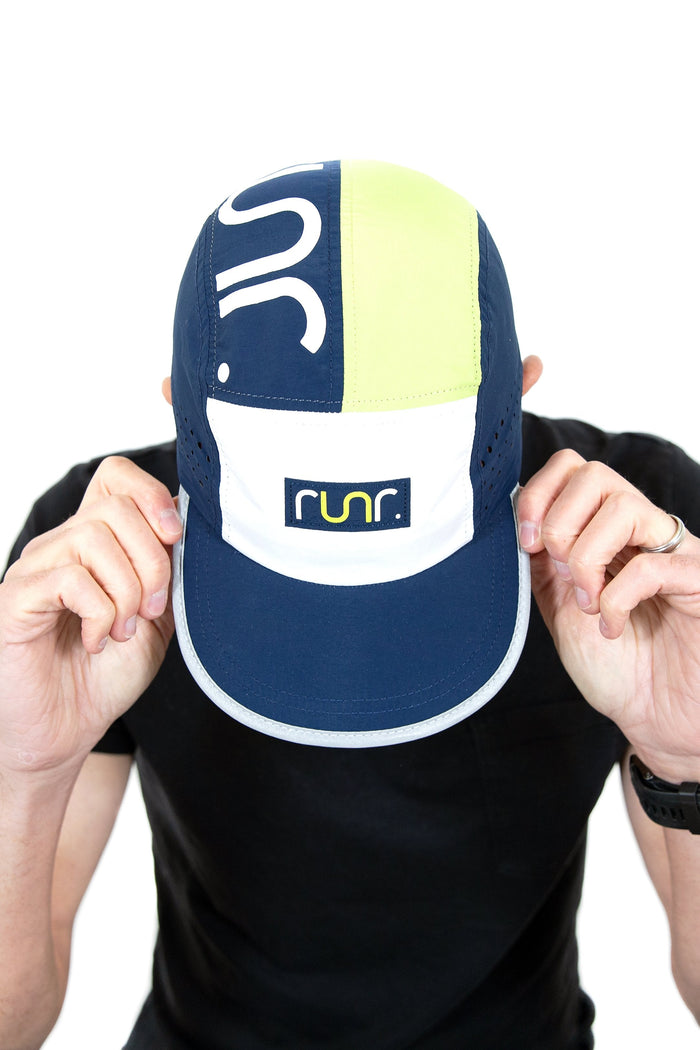Running Away From Anxiety
You’re coming down the stairs and miss your footing. There’s a bolt of panic, your heart leaps into your mouth and you cry out. An intense feeling of dread washes over you as your brain figures out what could have happened, what a total disaster it could have been. Hold that feeling.
That’s how anxiety feels.

When you stumble, your heart rate and breathing gradually return to normal once your brain acknowledges that the danger has passed. With anxiety it just doesn’t go away. It’s a constant and unrelenting dread, a thumping heart and rapid breathing.
Until I was in my early twenties I’d have said that anxiety was the knot of worry experienced in the hours before an exam, at news of a family members misfortune or when facing difficult life experiences. It was normal, rational. It put you on high alert ready to respond and raise your game if needed.
It was with the birth of my children that my anxious self made its appearance and it quickly spiralled out of control. So many things could go wrong. I had no idea what I was doing. Every outing was an opportunity for something awful to happen.
I hardly remember how it happened but very soon my norm was an insane, overwhelming sense of panic and doom. I’d wander round the supermarket, pushing a stroller with shaking, sweaty hands and racing heart. I’d find myself rubbing my throat in an attempt to release the suffocating constriction there, sucking in lungfuls of air as I always felt so short of breath. My insides felt twisted and cramped.
I had ECGs, I had anti-anxiety medication (which made me too zoned out) and to numb the constant pain – I drank more wine. I had massages and I meditated. But nothing released the vice like grip I felt my body to be in.
Over the years, I’ve read enough books, watched plenty of YouTube videos and listened to umpteen podcasts and now recognise that in my case my anxiety is a direct result of catastrophic thinking. I can’t help focusing on the worst possible outcome in any situation and rather than dealing with unpleasant emotions, I’ll do my darnedest to suppress them.
It’s never me I worry about. Oh no. I don’t panic in the least at any suspect medical symptoms I may experience or at the thought of what the future holds. All my worrying is over my family.
I overthink everything. When my baby grandson was referred for an extra hearing assessment, the crushing pain in my chest was so intense I thought I was going to die.
I’ll read some tragic news story and think ‘this ‘terrible thing’ could befall anyone,’ And from that very rational thought I’ll fast forward in my mind to ‘It’s going to happen to us.’
I magnify things way out of all proportion.
The good news is that as I’ve learnt more about anxiety, I’ve also learnt how to manage it. Running is my therapy. Here’s how it works for me.
With my chest in a vice-like grip and heart thumping, I lace up my trainers and head for the door. At the very first opportunity, I break into a gentle jog (no time for a warm up for me – I’m too desperate). For the first 10 minutes I force myself to notice everything around me; the trees, the flowers, the sights.

Rather than let my ragged gasps for breath consume my thoughts, I’m forced to control my breathing and now it’s completely natural that my heart is pumping faster and I realise it’s not such a terrifying sensation after all.
Within 15 minutes, I can feel my muscle tension evaporating – it’s hits me like an actual physical release – whomp! I visualise a flame burning in my body and burning off excess adrenaline and other stress hormones that drive anxiety. Relief floods in – and it is a flood - so much so that I’ve been known to cry.

Now I’m ready to mull over my worries. Are you surprised? Maybe you thought the whole point of my run was to forget about them? No. The true therapeutic effect for me comes from confronting the emotions I’ve been frantically burying and facing my fears head on.
There are recognised ways to manage catastrophic thinking and my tendency to think this way is so ingrained that I can only manage it when I’m out running.
I ask myself:
What is the worry?
I make a mental list of things I can I do about it - Sometimes, so many solutions will flood my mind that I have to wrestle my phone from my waist bag and quickly make a couple of one word reminders or speak into the audio app so I won’t forget.
I choose one
I’ll do that
Often my realisation is that there’s nothing I can do about my worry and that’s when my solution will be to learn to let things be.
For every worry under the sun, there is a remedy or there is none. If there is one, hurry and find it. If there be none, then never mind it. - LeGrand Richards

My worries never go away but when I’m running somehow I’m able to process them differently. Running allows me to take a step back and loosens the grip. I’ll start my run weighed down with all these negative thoughts roaring in my head, and after a mile or two, they’re merely squeaking like mice.
Running hits the reset button.
Some days are harder than others, but I’ve accepted my anxiety. It no longer controls me. Not now I’ve found a way to challenge it.
As part of #MilesForMind we want to raise money for Mind and also awareness of mental health issues.
 Skip to content
Skip to content













